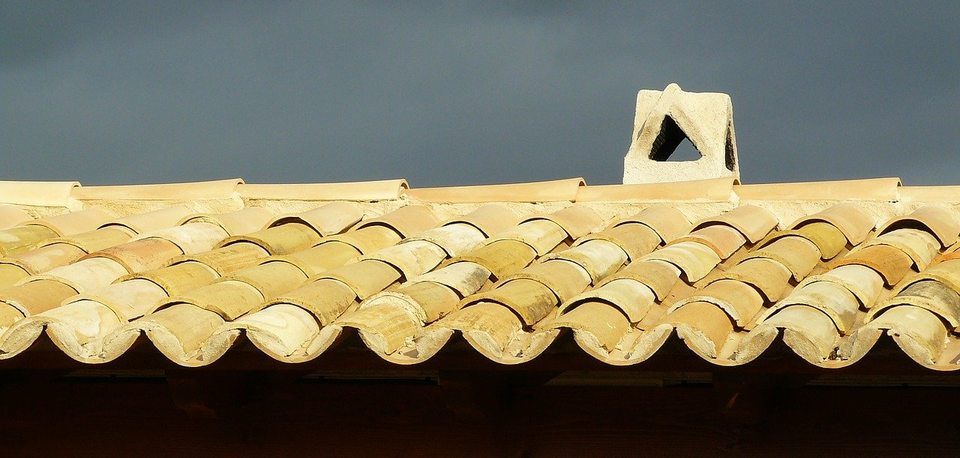Release of Liability and Hold Harmless Agreements by JEFFREY REMBAUM, ESQ., KAYE BENDER REMBAUM
by JEFFREY REMBAUM, ESQ., KAYE BENDER REMBAUM
If Your Association Requires One, Then You Must Read This…
Many communities offer a host of amenities for their residents and guests to enjoy, such as clubhouses, fitness centers, playgrounds, swimming pools, tot lots, tennis courts, etc. One of the upsides to providing such amenities is that the residents and their guests have a variety of activities to choose from, which enhances the quality of life within the community. However, one of the potential significant downsides to offering such benefits is that the association often incurs liability if a resident or guest is injured while using one of the amenities.
Accordingly, it has become commonplace for associations to require that residents and guests sign a document that releases the association from liability and holds the association harmless when a resident or guest uses the amenities. Although the title of the document may vary—“Hold Harmless,” “Indemnification Agreement,” “Release of Liability,” or “Waiver and Release”—there is usually language included within the document along the lines of the following:
“I, Mr. Owner, on my own behalf and on behalf of all other occupants and guests to my home, for and in consideration for use of the association’s facilities, equipment, etc. hereby release and hold harmless the association, its members, officers, directors, agents, etc. from any and all liability which may arise out of or in connection with my participation or use of the foregoing facilities, equipment, etc.”
This language is often referred to as an “exculpatory clause,” which is a clause that is designed to relieve a party from blame or liability. Such language has traditionally served to help prevent an association’s liability to an owner or guest when he or she is injured while using the amenities. It may have been a while since anyone has taken a good look at the specific language included in the association’s release, and it may be taken for granted that such language will automatically protect the association from liability. Many such form documents do not provide the protection you might think they should. A recent Florida appellate court case dealing with such exculpatory clauses highlights this potential issue and offers pause.
Specifically, The Estate of Nicholas Adam Blakely, By and Through Michele Wilson, as Personal Representative v. Stetson University, Inc., WL 17997526 (Fla. 5th DCA 2022), involved the tragic death of a young man who played football at Stetson University. As described in the written appellate opinion, the young man pulled himself out of an afternoon football practice complaining to an assistant athletic trainer that he felt dizzy and that his chest felt tight. Although the trainers continued to monitor his symptoms on the sidelines, after approximately 45 minutes the young man collapsed. Thereafter, university employees attempted various emergency medical procedures in an unsuccessful effort to revive him. The young man was transported to the hospital where, sadly, he died.
The trial court found that the two identical releases signed by the young man were sufficiently clear to bar claims brought against the university arising from his death after participating in the football practice. On appeal, however, one of the arguments focused on whether the language in the releases that the young man signed were sufficient to be enforceable. The appellate court determined it was not. Although the entirety of the written releases are unable to be reproduced here, the particular language that the court focused on is set out below. Specifically, the appellate court placed emphasis on the following:
I understand that the dangers and risks of playing or participating/practicing may include, but are not limited to: death…Because of the dangers and risks involved in participating in intercollegiate athletics, I recognize the importance of following the Coaches and Sports Medicine staff instructions regarding playing techniques, conditioning, rehabilitation/treatment recommendations and team rules, etc. and agree to obey such instructions…I hereby assume all risks associated with participation and agree to hold Stetson University…from any and all liability…of any kind or nature which may arise by or in connection with my participation in any activities related to the Stetson University athletic program. The terms hereof shall serve as a release and assumption of risk for myself, my heirs, estate, executor, administrator, assignees and for all members of my family. The terms hereof shall serve as a complete release and waiver of liability for myself, my heirs, estate, executor, administrator, assignees, and for all members of my family.
On its face, it sounds complete. But is it? In its analysis of the language included in the releases, the appellate court began by expressing that
[A]n exculpatory clause purports to deny an injured party the right to recover damages from a person negligently causing his injury. They are disfavored in the law because they relieve one party of the obligation to use due care and shift the risk of injury to the party who is probably least equipped to take the necessary precautions to avoid the injury and bear the risk of loss. Such claims are strictly construed against the party seeking to be relieved of liability. Thus, exculpatory clauses are enforceable only where and to the extent that the intention to be relieved from liability is made clear and unequivocal. The wording must be clear and understandable that an ordinary and knowledgeable person will know what he is contracting away (quoting UCF Athletics Ass’n, v Plancher, 121 So. 3d 1097, 1101 [Fla. 5th DCA 2013]).
Unlike the trial court, the appellate court took issue with the language contained within the releases because the release forms
- failed to expressly inform the young man that he was contracting away his rights to sue the university for its own negligence,
- used language that could reasonably lead one to believe that the university would be supervising and training [him] properly such that the young man was only being asked to sign the exculpatory clause to cover injuries inherent in a sport, and
- used language suggesting that the terms of the releases were for the young man’s benefit.
Accordingly, the appellate court determined that the foregoing supported a determination that the releases were not clear and unambiguous. So, what does the appellate court’s decision mean for exculpatory clauses as related to an association’s release? It means that associations need to review the language in such exculpatory clauses with counsel to assist in aligning the language with the thinking of the court. For example:
- Is the language in the release clear, unambiguous, and written in such a way that an ordinary and knowledgeable person would know that he or she is contracting away his or her right to sue the association if an injury occurs?
- Is the language in the release free from any indication whatsoever that training and/or supervision is being provided by the association to avoid a mistaken belief by the owner or guest that he or she is merely signing away his or her right to sue for injuries inherent in a particular activity?
- Is it unequivocally clear that the individual is giving up all rights to litigate against the association in regard to any accident that may occur, even if the association was negligent?
- Are there terms in the release that would make it seem as though the release is for the benefit of the homeowner or guest and not the association?
If you are in doubt as to the exculpatory language included in your association’s release, do not wait until a homeowner or guest is injured, or possibly worse, to discover that the language is not appropriate for protecting the association from liability. In light of this most recent opinion, you should discuss with your association’s legal counsel when there would be a good opportunity to review and amend such release of liability and hold harmless agreements.




 We guarantee, by written contract, that your Association will NEVER receive an invoice for Costs or Legal Fees advanced and/or incurred by our Law Firm in providing delinquent account collection services under our
We guarantee, by written contract, that your Association will NEVER receive an invoice for Costs or Legal Fees advanced and/or incurred by our Law Firm in providing delinquent account collection services under our 






 The United States federal government has financial incentives for municipalities which implement flood preparation systems, but the policies must be in line with FEMA guidelines. Towns with programs in place for flood management also can provide incentives to individuals to get reduced flood insurance rates. Many community governments already have programs in place, but these plans and programs must be updated, reviewed and enforced to match FEMA’s updates.
The United States federal government has financial incentives for municipalities which implement flood preparation systems, but the policies must be in line with FEMA guidelines. Towns with programs in place for flood management also can provide incentives to individuals to get reduced flood insurance rates. Many community governments already have programs in place, but these plans and programs must be updated, reviewed and enforced to match FEMA’s updates. Brothers Backflow Specialists is state licensed and insured in the plumbing and gas industry. Our technicians specialize in plumbing, backflows, propane, natural gas, medical gas and water restoration including everything from installing gas lines, testing backflows and repairing broken plumbing pipes. We provide services for commercial, residential, industrial & farm properties from Monroe to West Palm Beach County as well as backflow services in Orlando, Florida. Brothers Backflow Specialists is here to serve you 24 hours a day / 7 days a week and no job is too big or too small.
Brothers Backflow Specialists is state licensed and insured in the plumbing and gas industry. Our technicians specialize in plumbing, backflows, propane, natural gas, medical gas and water restoration including everything from installing gas lines, testing backflows and repairing broken plumbing pipes. We provide services for commercial, residential, industrial & farm properties from Monroe to West Palm Beach County as well as backflow services in Orlando, Florida. Brothers Backflow Specialists is here to serve you 24 hours a day / 7 days a week and no job is too big or too small. When PRS looks at a project we want to ensure we are putting the “right” solution to the problem at hand. Every project has its unique needs based on overall job scope, site conditions, project timeframes and difficulty level. At Pipe Restoration Solutions, we have found that when high-quality material and creativity comes together something special happens… Projects are completed with excellence and above expectation; Long term relationships are built; Problems are permanently solved.
When PRS looks at a project we want to ensure we are putting the “right” solution to the problem at hand. Every project has its unique needs based on overall job scope, site conditions, project timeframes and difficulty level. At Pipe Restoration Solutions, we have found that when high-quality material and creativity comes together something special happens… Projects are completed with excellence and above expectation; Long term relationships are built; Problems are permanently solved. GreenTeam is an organization dedicated to providing the highest quality of service, to multiple vertical markets. The company performs Plumbing and Electrical services in South Florida. GreenTeam clients include but are not limited to: Class A Office buildings, healthcare facilities, educational facilities, Hotels and Resorts, Condo Associations, industrial warehouses, and residential. Our mission statement is simple, Exceptional Service, No Exceptions.
GreenTeam is an organization dedicated to providing the highest quality of service, to multiple vertical markets. The company performs Plumbing and Electrical services in South Florida. GreenTeam clients include but are not limited to: Class A Office buildings, healthcare facilities, educational facilities, Hotels and Resorts, Condo Associations, industrial warehouses, and residential. Our mission statement is simple, Exceptional Service, No Exceptions.









 Victor Lupis / Owner
Victor Lupis / Owner







